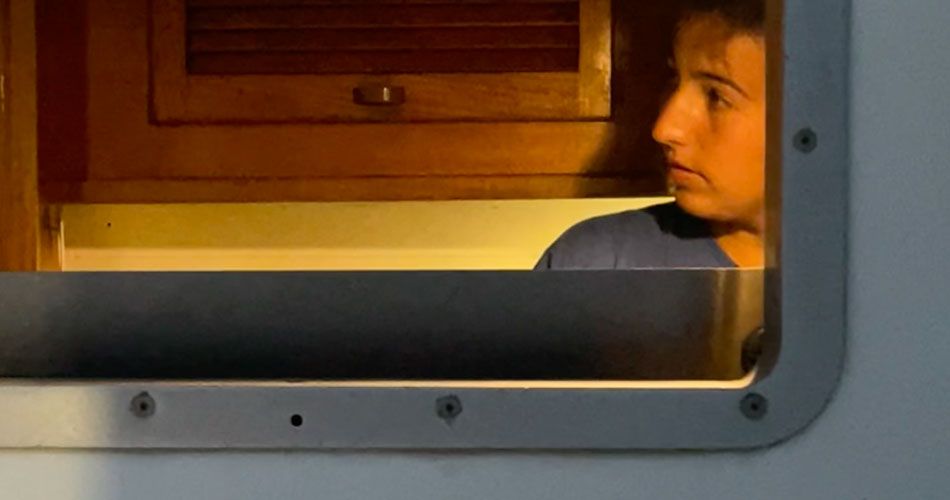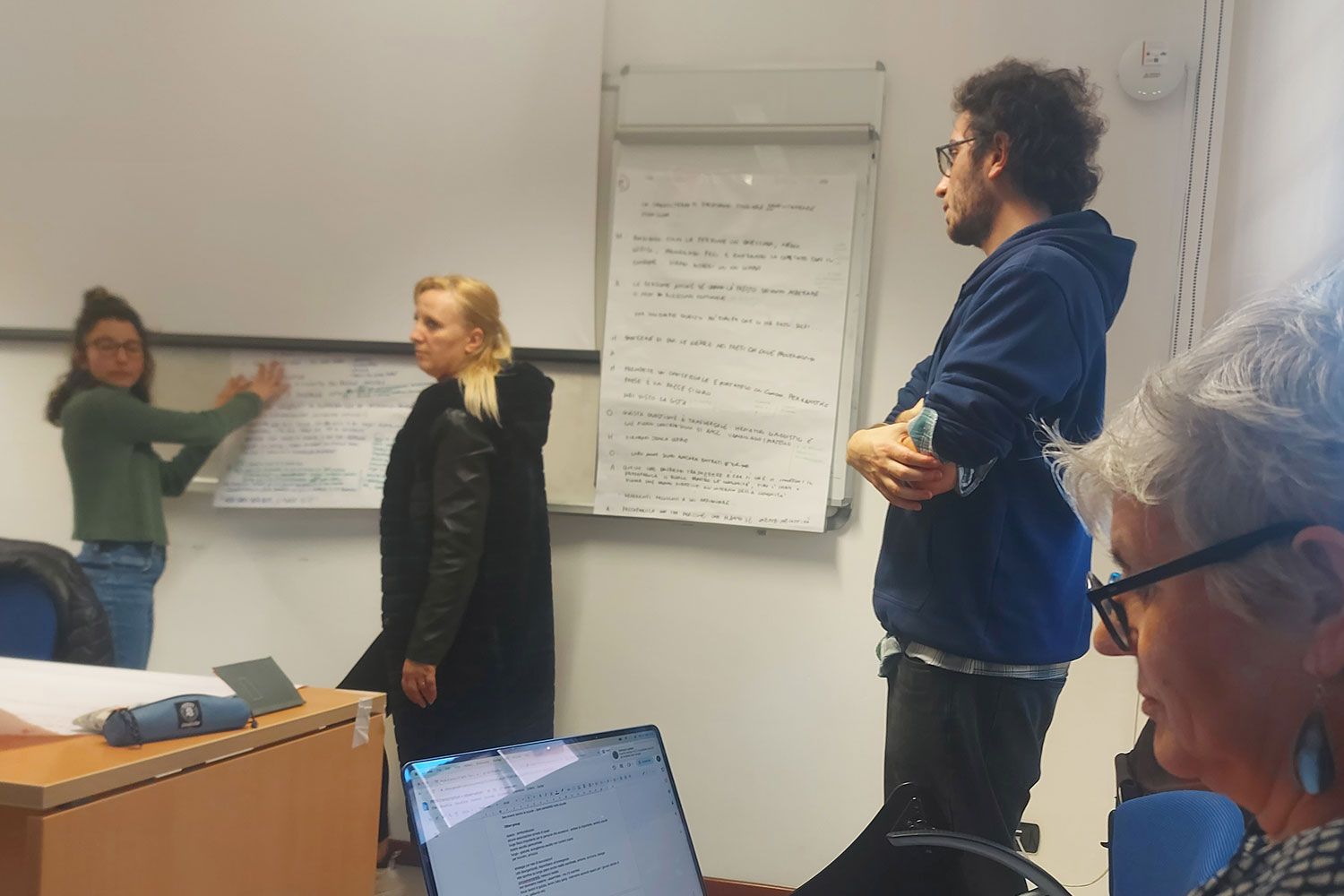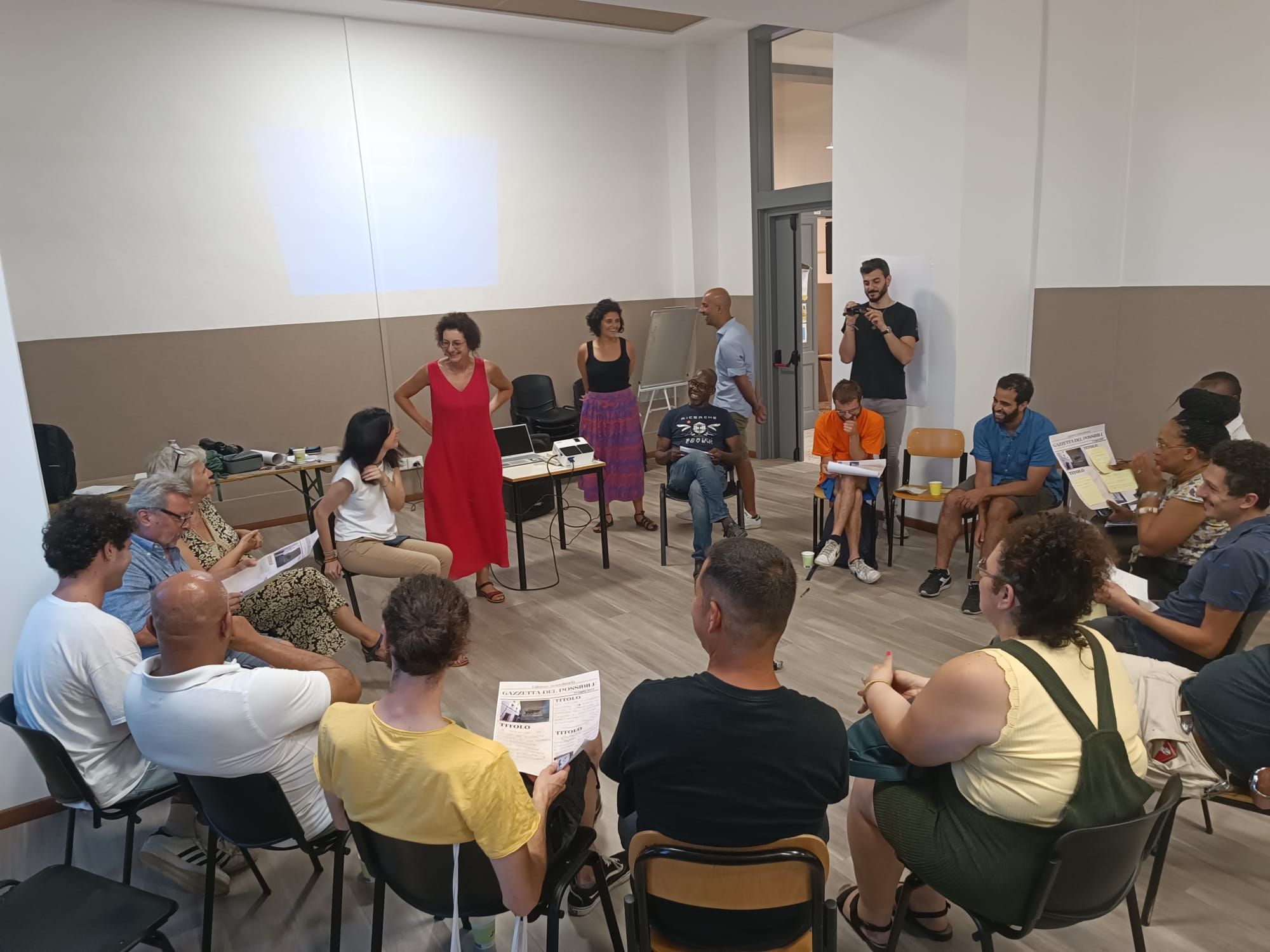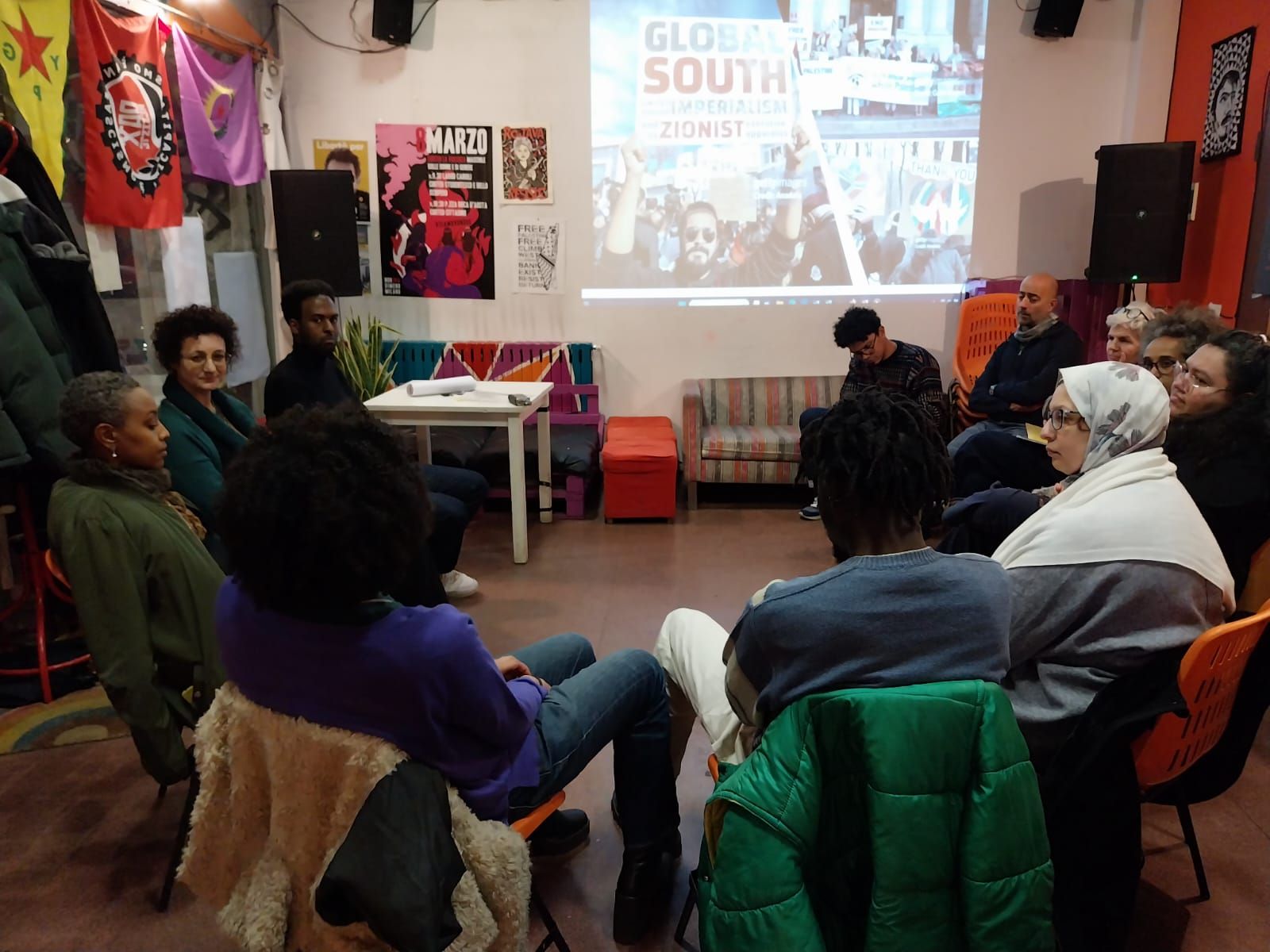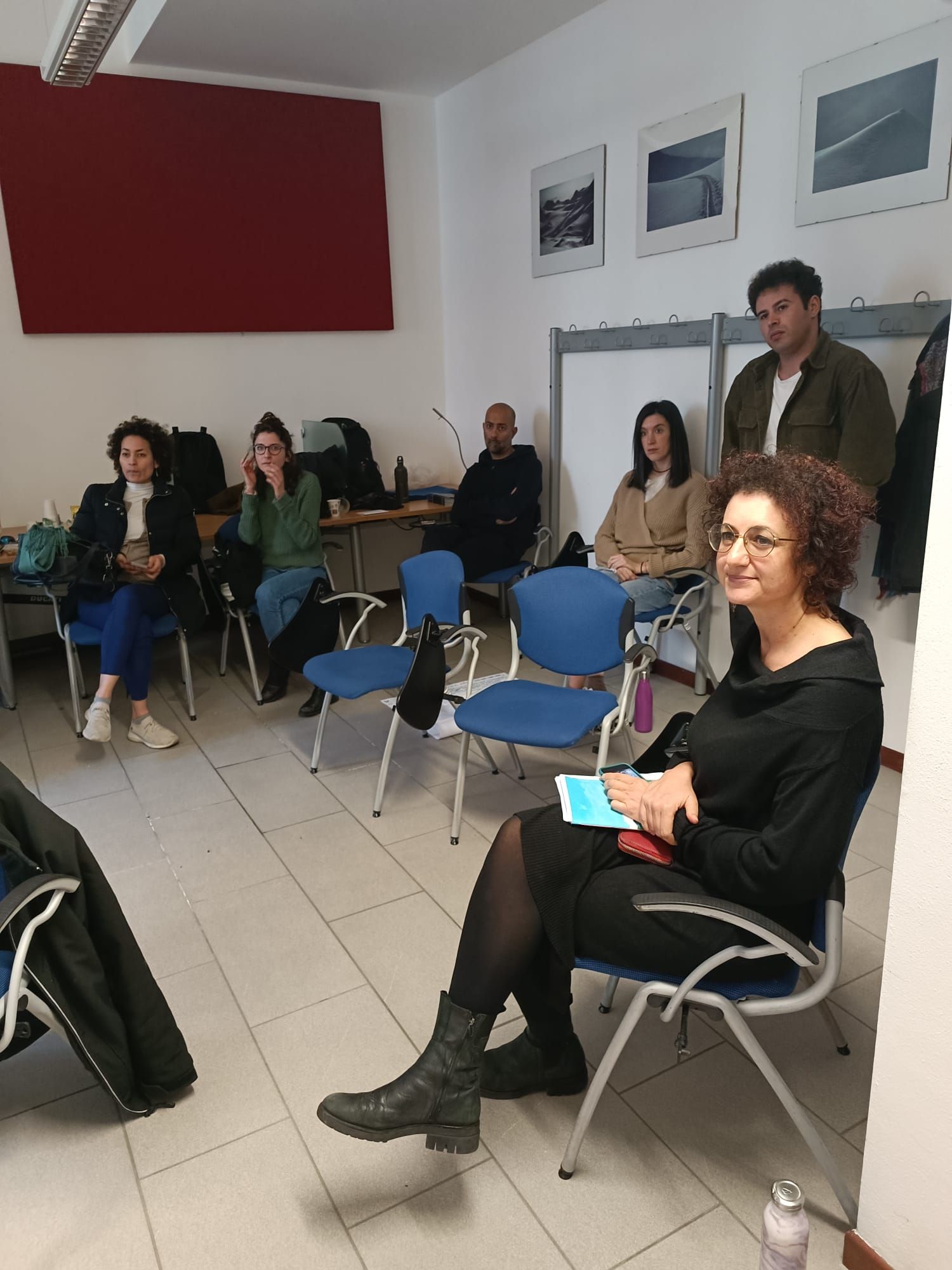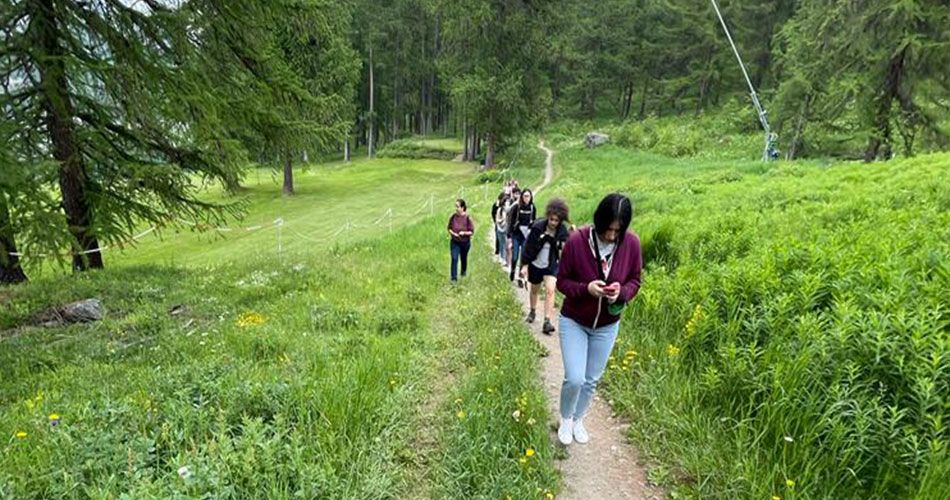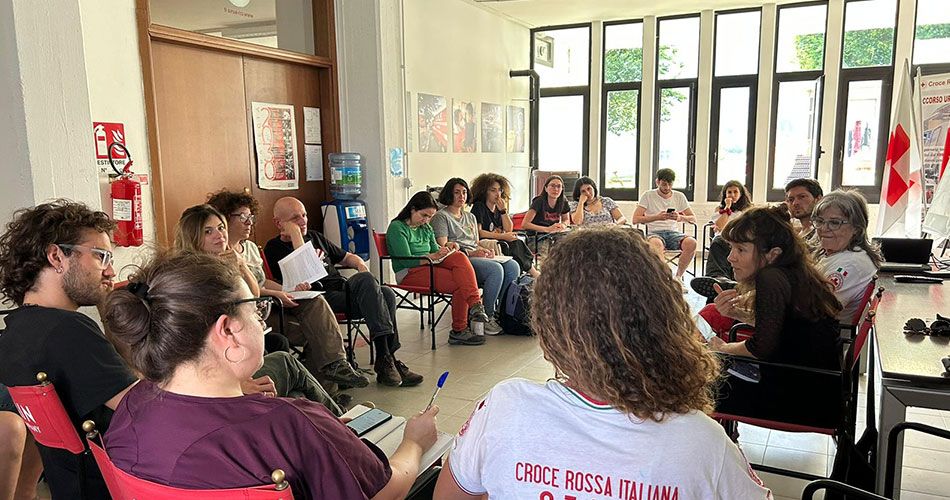Research teams
The MOBS research project works on four types of transit spaces, the Mountain Space, the Mediterranean Sea, the Rural Area, and the Urban Area, where multiple imaginaries and forms solidarities take place and hybridate. The MOBS research teams is composed by five research units (Genoa, Parma, Padua, Milan and Naples – L’Orientale) each one of which works on two/three transit spaces in cooperation with at least another research unit. The MOBS research team is composed by a group of skilled researchers from various disciplines, who grant a trandisciplinary gaze on the research subject and ensure high-quality research.


From the methodological point of view, the University of Genoa unit has a long experience in ethnographic research, mainly in combination with visual techniques, art-based methods and participatory methodologies. Drawing on an idea of public sociology, aiming to engage non-academic audiences, this research unit, through the joint effort of a group of researchers and artists, intends to bring research work out of the boundaries of academic institutions. Thus, through articles, books, docu-films and other “cultural objects”, the University of Genoa research group will try to foster public debate on emerging migration issues and on Italy as a border space, trying as well to advance the theoretical elaboration on the nexus between migration and solidarity.
The University of Genoa research unit is the project Leading Partner and is composed:

Luca Queirolo Palmas is Professor in Sociology of Migration and Visual Sociology at Genoa University. Co-director of Mondi Migranti, Journal of Studies and Research on International Migration. He has directed several European projects on migrations, gangs and youth; he is now leading as Principal Investigator the ERC AdG project SOLROUTES – Solidarity and Migrants Routes Across Europe at Large. Since 2016, he is member of the Scientific Advisory Board of TRANSGANG “Transnational Gangs as Agents of Mediation”, an ERC-Advanced-funded project. He has been Supervisor of a Global Marie Curie Fellowship on asylum policies in Europe and Canada and of an EU COFUND Doctoral Program on migration in marginalised areas (REFINTEG and CLOE). His last publication with Federico Rahola – Underground Europe. Along Migrants Routes, Palgrave, New York – has recently won an award as best sociological book by RC 31 (Sociology of Migration) of International Sociological Association.
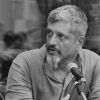
Enrico Fravega is post-doc Research Fellow at the University of Genoa, where he coordinates the MOBS research project. In his recent research work he explored the nexus between migration, housing conditions and temporalities. His methodological approach mainly relies on ethnographic and participative methods, as well as on biographical methods. He is member of the University of Genoa “Laboratorio di Sociologia Visuale”. Recent publications include: Crocevia Mediterraneo with Jacopo Anderlini (eds.), (Eleuthera, 2023); La lotta per il tempo, with Daniela Giudici and Paolo Boccagni (Meltemi, 2023); Looking for homes in migrants’ informal settlements. A case study from Italy. In “Migration and domestic space: Ethnographies of home in the making” (eds. Boccagni, P., Bonfanti, S.), (Springer, 2023); Trasformazioni Mediterranee. Migrazioni, incontri e barriere, with Luca Queirolo Palmas, “Dialoghi Mediterranei”, 2023, n. 60.

Ivan Bonnin is a critical sociologist currently employed as a postdoc researcher at the University of Genoa. His interests of research span from border studies to racial capitalism in Europe and in the Mediterranean, from social theory to international relations ‘from below’. Since 2015 Ivan has extensively worked on the borderland of Ventimiglia, where he conducted ethnographically-embedded analysis of various kind. Both as a sociologist and an activist, he believes in the transformative energy of solidarity and supports practices of radical democracy.

The University of Genoa research team works on the following transit spaces:


Our team’s methodology combines biographical analysis, multi-sited participatory and art-based methods, within an overall framework informed by public and reflexive sociology. The use of biographical methods during fieldwork activities allows to challenge more prescriptive, state-oriented and officially pre-established narratives already available and to enhance the elaboration of critical knowledge which crucially relies on the standpoint of migrants, their experiences and expectations. Our aim is to produce a wide array of research outputs which include both scientific papers, policy briefs, articles, and “cultural objects” (such as images, drawings, short stories, art objects, audio-visual materials) thanks to the combination of both sociological, legal and artistic expertise available in our team.
The University of Milano resaerch unit is composed by:

Monica Massari is Associate Professor at the University of Milan where she teaches Sociology of Memory, Global Societies and Rights, and Comparative Social Systems. Her research activities mostly address issues related to new forms of racism and discrimination in Europe and Mediterranean migration with a specific focus on migrants’ traumatic memories, gender dynamics and forms of exploitation. Her methodology largely relies on the use of biographical methods and narrative approaches. Beside coordinating UNIMI’s group involved in MOBS, she is also the local PI of Horizon2020 project ITHACA and Scientific Coordinator of the Marie Curie Postdoctoral Global Fellowship MEMODIAS on memory practices of the Afghan and Somali Diasporas in the USA and Italy.

Federica Cabras, PhD, is Research Fellow at the Department of International, Legal, Historical-Political Studies of the University of Milan. Her research interests mostly address issues related to human trafficking, with a specific focus on sexual and labour exploitation of women. She has recently carried out fieldwork activities on the Italian prostitution market and the links between exploitation and religious dimension in Nigerian human trafficking system. Whitin MOBS, she is involved in research activities concerning the rural transit space with the case studies Greenhouses and gendered exploitation and resistance and Self-entrepreneurship in alternative agri-food chains.

Alessandra Cianelli, indipendent researcher, artist, cultural practitioner. She works at the intersection of private and collective memory practices, producing video, audio, writings, performances, workshops. One of her most recent project, Il Paese Delle Terre D’Oltremare (The Land of Overseas Territories), explores colonial/post-colonial archives, focusing on the monumental exhibition complex Mostra d’Oltremare in Naples. Member of the Centre for Postcolonial and Gender Studies and TRU-Technological Research Unit, at the University of Naples l’Orientale, she founded Dormire Foundation in 2014, a no profit cultural association and informal residence project for artists, thinkers, researchers. Within MOBS, she is currently collaborating with UNIMI’s team in conceiving and implementing the visual and artistic dimension of research activities.

Luigi Di Cataldo is Research Fellow at the Department of International, Legal, Historical-Political Studies of the University of Milan. His research interests deal with labour, regulation and industrial relations. He has recently carried out various research projects on platform work from an interdisciplinary perspective that combines legal and sociological categories and techniques. Among his publications, several contributions deal with the case of riders involved in food delivery. Within MOBS, he is involved in research activities concerning the urban transit space and the case study Migrant riders and trade unionism.

Ombretta Ingrascì, PhD, is Research Fellow at the Department of International, Legal, Historical-Political Studies of the University of Milan. Her research interests mainly focus on organized crime – especially from a gender perspective –, human smuggling and women’s trafficking for sexual exploitation. She currently works within the research unit of the Horizon project ITHACA. Interconnecting history and archives for migrant agency and since the beginning she has been collaborating with MOBS’ UniMI team, especially in addressing gender issues and various forms of migrants’ exploitation.
The University of Milano research unit works on the following transit spaces:


The UNIOR research group is composed by two legal scholars and two anthropologists, namely Adele Del Guercio (associate professor) and Francesca Rondine (PhD); Miguel Mellino (associate professor) and Andrea Ruben Pomella (PhD). As to the legal part of the research, it consists of a critical appraisal of border management and regulation, both at the EU and at the national level. The analysis takes into account both the institutional level and the concrete issues faced by NGOs and solidarity actors. The expertise is rooted in the research activities of the legal team, which have concerned, inter alia, the maritime border and transit zones. As to the anthropological field, the main theoretical framework is grounded in cultural and
postcolonial studies. Such an approach is applied to the study of racialization processes in urban areas. Indeed, Miguel Mellino has devoted his academic career to developing postcolonial theory in Italy, while Andrea Ruben Pomella has spent his PhD years in an ethnographic fieldwork research. A further important element for our research team is the involvement of master’s degree students in research activities. The creation of an interdisciplinary university clinic”, with a sociological-legal gaze, opens our team to students of the Department of Human and Social Sciences for working on case studies to support the actors cross-border solidarity.
The University of Napoli L’Orientale research team is composed by:

Adele Del Guercio is Associate Professor of International Law at the University of Naples “L’Orientale” (DSUS), where she teaches European Union Law, EU External Relations and International Environmental Law. She has published a monograph entitled “The Protection of Asylum Seekers in International and European Law” and numerous articles on human rights, the right of asylum, the protection of minor migrants, the rights of LGBTQ+ people. She is member of the PRA (University Research Project) “Anthropocene/Capitalocene and international migrations. A critical reading”, and Vice-president of the research centre MOMI (Mobility, International Migration) of UNIOR. She is in charge, with the professors Vincenza Pellegrino and Veronica Valenti, of the sociological and legal clinic “migrations and borders”, activated at UniParma and UNIOR. Since 2021 she has been an Expert on International Protection and Human Rights, appointed by UNHCR and deployed in the Territorial Commission of Naples. She has given training to public administration employees, school staff, scholars and migrants about issues related to asylum and immigration.

Miguel Mellino is Associate Professor on “Postcolonial Studies and Interethnic Relationships” at the University of Naples “L’Orientale”. His field of research is on migration, racisma and antiracism. He is the author Marx nei Margini. Dal marxismo nero al femminismo postcoloniale (Alegre 2020, with Andrea R. Pomella), Governare la crisi dei rifugiati (Deriveapprodi 2019, trasnlated into Spanish); Stuart Hall: Cultura, razza e potere (ombre corte 2015), Cittadinanze Postcoloniali. Appartenenze, razza e razzismo in Italia e in Europa (Carocci 2012), La Critica Postcoloniale. Decolonizzazione, capitalismo e Cosmopolitismo nei Postcolonial Studies (2005, translated into Spanish La Critica poscolonial. Descolonizacion, capitalismo y cosmopolitismo en los estudios poscoloniales, Buenos Aires, Paidos, 2008), La Cultura e il Potere. Conversazione sui Cultural Studies (2006, with Stuart Hall, translated into Spanish La cultura y el poder, Buenos Aires, Amorrortu, 2010), Post-Orientalismo. Said e gli studi postcoloniali (2009). He is the editor of the Italian translations of Frantz Fanon’s Ecrit Politiques, Pour la Révolution Africaine (2006) and L’an V de la révolution algérienne (2006), and Césaire’s Discours sur le colonialisme (2010).

Francesca Rondine è assegnista di ricerca presso l’Università di Napoli l’Orientale. Ha conseguito il dottorato di ricerca in diritto internazionale presso l’Università Sapienza di Roma. Ottiene nel 2015 la laurea specialistica in studi internazionali all’Università l’Orientale di Napoli e un LL.M. in international migration and refugee law presso la Vrije Universiteit (VU) Amsterdam nel 2017. Tra il 2017 e il 2018 svolge attività didattica e di ricerca presso la VU Amsterdam e la Universiteit van Amsterdam (UvA). Da luglio 2018 a luglio 2019, e nuovamente dal maggio 2021, lavora come case-worker presso l’Unità Dublino del Ministero dell’Interno, Dipartimento libertà civili e immigrazione.

Andrea Ruben Pomella is PhD in Anthropology. From 2019 to 2022, he carried out in the railway station area of Naples an ethnographic fieldwork research on informal practices of survival, mutual assistance and resistance, deployed by asylum seekers and members of the local Senegalese community. His main field of study concerns racialisation of space processes – how the atmosphere shape social and economic conditions of racialised people – and racialisation of affects processes – how social relationships are established by racialised people and white natives. He is also the author of Marx nei margini. Dal marxismo nero al femminismo postcoloniale (Alegre 2020, with M. Mellino).
The Orientale research unit works on the following transit spaces:



The University of Padua research team coordinates the urban transit space and participates in the research in the mountain transit space. In both contexts the goal is to investigate the social production of border porosity and new political imaginaries by recognising the epistemic privilege of migrants and social actors racialized as non-white. In the urban space our study explores how everyday bordering can reveal the continuing racial character of the state (Goldberg 2002) and how the intensive marking of belonging and entitlement through bordering has become an important element of state practices (Bhattacharyya 2018, 144). The Unipd MOBS research unit focuses on the transit space of the city as a specific social arena where migrants/refugees look for better opportunities and encounters and reshape their trajectories. Future Labs will be the core methodology since migrant agency and networks of anti-racist solidarity give rise to unprecedented socio-cultural spaces and political imaginaries that can prefigure a different social order. On the border between Oulx, Cesana and Briançon (Western Alps) our research team has focused on the agency of migrant and racialized subjects and we have cooperated with Meltingpot to search for a more public sociology.
The University of Padova research team is composed by

Annalisa Frisina is Associate Professor of Sociology at the Department FISPPA (Philosophy, Sociology, Education & Applied Psychology) of the University of Padova, where she teaches qualitative and visual methods for undergraduate, graduate and doctoral students. Her main research interests are in sociology of racism and migrations, from a post and decolonial perspective. Her participatory video “Decolonising the City. Visual Dialogues in Padova” received two Visual Research Awards in 2021, by the International Visual Sociology Association (AntiColonial & AntiRacist Award for Visual Activism) and by the Festival DocuCity/MetiCittà, University of Milan in cooperation with the Museum of cultures. She is the Scientific Supervisor for the University of Padova Unit in the research project MOBS. Recent publications include: What We see (and What we don’t): Resignifying Urban Traces of Colonialism, in Pauwels L. (ed.), Visual and Multimodal Urban Sociology (with Giovanni Semi, 2023); Music and words against racism. A qualitative study with racialized artists in Italy in “Ethnic and Racial Studies“ (with Sandra Agyei Kyeremeh, 2022); Art and counter-racialization processes. A qualitative research journey with Italy’s illegitimate children in “Studi Culturali” (with Sandra Agyei Kyeremeh, 2021); and a book on Contemporary Racisms. Sociological Perspectives (Carocci 2020).

Francesca Helm is associate professor of English at the Department of Political Science, Law and International Studies at the University of Padova where she teaches English in both first and second-level degree courses. Her research interests include (de)coloniality in language education and edtech, language policy, linguistic landscapes, interculturality and critical internationalisation studies. She is co-coordinator of the Italian section of Scholars at Risk.

F. Gaia Farina is Research Fellow at the FISPPA department, University of Padua and member of the research group ‘Slang’. PhD in Social Sciences: interactions, communication and cultural constructions and B.A. in Communication Studies (University of Bologna), she teaches for the Visual sociology workshop in the first-level degree courses on Sociological Sciences (UNIPD). Her research interests include youth and urban cultures, anti-racism, multicultural society, with a focus on ethnographic, visual and collaborative research methods. Gaia collaborates in the design of social communication campaigns and carries out training activities on issues related to anti-racism, interculture, critical media analysis, gender and intersectional education.
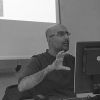
Omid Firouzi Tabar. Phd in “Sociology of cultural phenomena and normative processes”, he carried out studies and qualitative research in the field of migration control policies with a particular focus on “bordering” and “othering” strategies and the ‘counter-conducts’ and resistances implemented by racialised subjects. He is currently Research Fellow at the FISPPA Department, University of Padua. At the same University is member of the research group ‘Slang’ and carries out teaching, research and coordination activities within the Master in “Critical Criminology”.
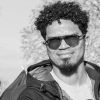
Gustavo Alfredo Garcia Figueroa. Is Research Fellow at the FISPPA department and member of the research group ‘Slang’, University of Padua. Sociologist, publisher and anti-racist activist. In Venezuela he worked as coordinator of the group of social workers of the Urban Planning Department of the City of Caracas. He has done research and teaching on the social production of living in the slums of the capital and on the social conditions of people with disabilities. He has taught at the Strategic Research on Africa and Diaspora Institute (Caracas). In Italy he attended the master’s degree in Sociology at the Roma Tre University and currently attending the master’s degree in Cultural Pluralism, Social Change and Migrations at the University of Padua. He collaborates with Melting Pot Europe platform. Publisher of the independent Paduan publishing house Oso Melero specializing in Latin American, Caribbean and migrant literature for children.
The University of Padova research unit works on the following transit spaces:

Our research team is transdisciplinary, involving sociologists, jurists, artists engaged together in both the phases of ethnographic research at the border and of participatory research opening a public debate with citizens and social groups in borderzones thanks to the collaboration with solidarity actors. We want to frame the structural dimensions of mobility governance – e.g. the legal framework – with the use of research methodologies aimed at investigating the social imaginaries that characterise and give meaning to these dimensions, in particular through memories- and futures-oriented and visual methodologies. The former is aimed at grasping the collective philosophies of history, i.e. the idea of past and future that characterises experiences and contexts of mobility, in order to go beyond the emergent rhetoric to which the public debate condemns us; the latter, of a photographic nature, performs for us a hermeneutic function, a stimulus for the debate. A further important element for our research team is the involvement of master’s degree students in research activities. The creation of an “Interdisciplinary University Clinic”, with a sociological-legal gaze, opens our team to students of law, sociology, anthropology for working on case studies to support the actors cross-border solidarity.
The University of Parma research unit is composed by:

Vincenza Pellegrino is an Associate Professor of Cultural Sociology at the University of Parma where she teaches sociology of globalisation, cultural sociology, social policies, and is actively involved in public sociology. Among other things, she is director of a postgraduate course in “Participatory Public Welfare” and the rector’s delegate to the University Prison Centre. Her research in recent years has focused on various topics including: the analysis of globalisation and glocalisation processes from a post- and de-colonial perspective; the evolution of the welfare state from a participatory perspective; the analysis of political and social imaginaries, specifically with respect to temporality and the ability to aspire to the future; methodological innovation in the social sciences from a reflexive, participatory, emancipatory perspective.

Jacopo Anderlini (PhD) is a postdoctoral researcher at the University of Parma and he is part of the Visual Sociology Laboratory of the University of Genoa. His main research interests revolve around border studies, refugee studies, migration, critical theory on technologies, social and political philosophy. His work mixes qualitative methods and ethnography – with both multi-sited and digital fieldwork – and critical theoretical reflection. He investigates the transformations of the government of mobility, its infrastructures and logistics, at the southern borders of Europe. He is part of the international academic network on critical migration and border studies Kritnet, of the international academic network at the crossroads between Science and Technology Studies and Critical Migration STS-MIGTEC and is co-founder of the research group on the analysis of digital technologies C.I.R.C.E..

Lorem ipsum dolor sit amet, consectetur adipiscing elit. Mauris blandit diam eu ex commodo, eu porta sapien congue. Curabitur luctus eget lectus ut sodales. Nulla ut posuere erat. Donec ut eros tortor. Nunc eu accumsan felis, non eleifend augue. Aliquam luctus blandit ante, non vulputate ante tincidunt eu. Vestibulum cursus sapien ut gravida. Integer enim lacus, posuere ut sem eu, posuere commodo. Nulla ut posuere erat. Donec ut eros tortor. Nunc eu

Luca Giliberti is Senior Assistant Professor (RTD-B) in Sociology of Cultural and Communicative Processes at the University of Parma (Department of Humanities, Social Sciences and Cultural Industries), where he teaches Sociology of Education. His main areas of research are transnational migration, borders, educational and training processes. He has carried out research activities, particularly of a qualitative and ethnographic approach, within various scientific networks in Spain, Dominican Republic, France and Italy. He is chercheur associé of the Unité de Recherche Migrations et Société (URMIS) of the Université Côte d’Azur in Nice, and research fellow at the Institut Convergences Migrations. He is the author of two monographs (Negros de Barcelona. Genoa: GUP, 2018; Abitare la frontiera. Verona: Ombre Corte, 2020), as well as numerous essays and articles in relevant scientific journals in the field and in national/international edited books.

Guglielmo Agolino is a postdoctoral researcher in Constitutional Law at the University of Parma. After graduating in Law at the University of Parma, he is teaching tutor in Constitutional Law at the same University. Since 2019, he has been a PhD student in Legal Sciences at the University of Modena and Reggio Emilia. He was a trainee at the Public Prosecutor’s Office in Parma. In 2021 he qualified as a lawyer. He is the author of articles in scientific journals on, inter alia, the hotspot approach and habeas corpus.

Veronica Valenti is Associate Professor in Public Law and she teaches Public Law and Equal Opportunities Law at the Department of Law, Political and International Studies – University of Parma. Her research fields are: the evolution of the welfare state; migration processes, intergenerational responsibility, fundamental rights, equal opportunities.
The University of Parma research unit works on the following transit spaces:

